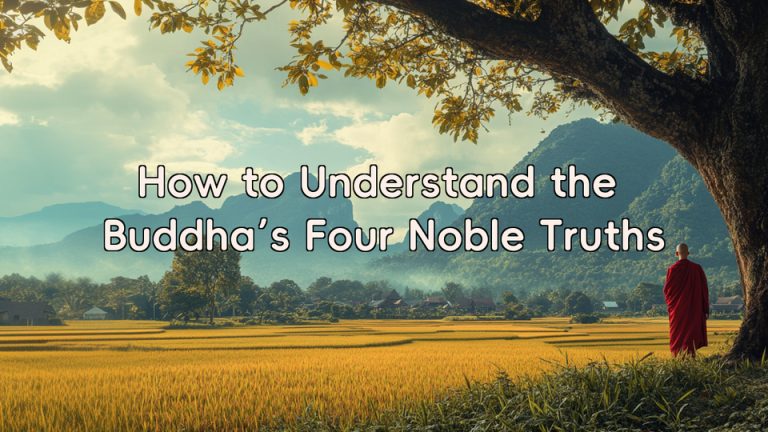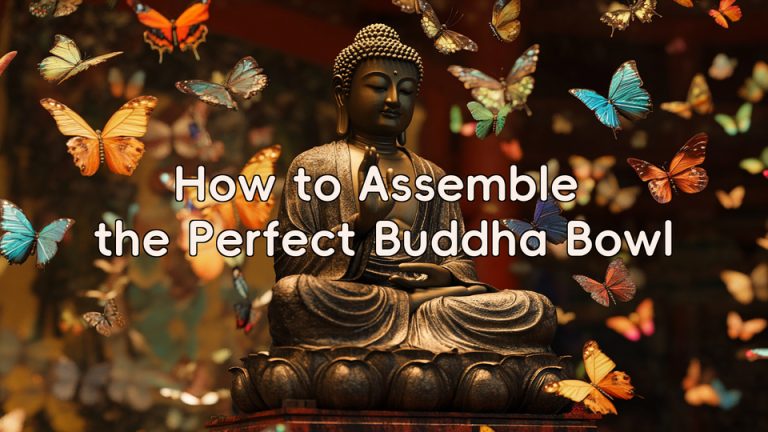What Does Buddha Mean?|Exploring the Essence of Enlightenment and Compassion
In the quest for understanding the essence of life, the inquiry into “What does Buddha mean” transcends mere definition, inviting us into a realm of reflection and exploration. The term “Buddha” signifies not just a historical figure but a profound concept rooted in wisdom, enlightenment, and compassion. This article endeavors to unravel the multifaceted meanings of Buddha, examining his teachings within the contexts of philosophy, spirituality, and cultural influence, offering insights that resonate through time.
The Essence of Enlightenment: Understanding Buddha’s Teachings
At the heart of Buddha’s significance lies the concept of enlightenment. The word “Buddha” itself means “the awakened one,” encapsulating a state of profound understanding and liberation from suffering. Through rigorous meditation and introspection, Siddhartha Gautama, the historical Buddha, embarked on a transformative journey under the Bodhi tree, where he attained enlightenment after years of searching for the truth.
Buddha’s teachings, often encapsulated within the Four Noble Truths, present a path toward understanding the nature of suffering and the means to overcome it. The first truth reveals the existence of suffering, the second identifies its cause—attachment and desire, the third offers hope through the cessation of suffering, and the fourth lays out the Eightfold Path as a guide toward liberation. This philosophical framework provides fertile ground for exploring the essence of Buddha, revealing that to understand what Buddha means is to engage deeply with the nature of existence itself.
The teachings not only illuminate the path to Nirvana but also encourage a mindful approach to daily life. Each aspect of the Eightfold Path—right understanding, right intention, right speech, and so forth—serves as a reminder of the importance of aligning thoughts, words, and actions, thus fostering a life grounded in ethical integrity and spiritual growth. In this way, the exploration of “What does Buddha mean” serves as an invitation to cultivate self-awareness and compassion in a chaotic world.
Buddha in Cultural Context: A Symbol of Peace
Beyond his philosophical teachings, Buddha flourished as a symbol throughout various cultures, embodying ideals of peace and tranquility. His image, often depicted in serene postures, transcends geographical boundaries, resonating with diverse populations seeking solace and mindfulness. In this way, understanding “What does Buddha mean” can also be viewed through the lens of cultural significance.
In many Eastern cultures, Buddha symbolizes not only religion but also a lifestyle—one that embraces compassion, non-violence, and empathy. Festivals, rituals, and art inspired by Buddha express values that encourage harmony among individuals, communities, and even nations. The concept of “Bodhisattva,” an enlightened being who strives for the enlightenment of all, emphasizes selflessness and the interconnectedness of life, reinforcing the idea that peace begins within.
As Buddhism has spread to the West, the image of Buddha has intersected with various cultural practices, integrating meditation and mindfulness into contemporary life. The growing popularity of these practices highlights a collective yearning for peace amidst the pressures of modern existence. Thus, Buddha serves as more than a historical figure; he is a timeless source of inspiration.
Philosophical Reflections: The Path to Nirvana
The philosophical implications of “What does Buddha mean” take on a deeper complexity when we consider the concept of Nirvana. This state of liberation represents the ultimate goal of Buddhist practice, signifying the cessation of suffering and the end of the cycle of birth and rebirth. It encourages individuals to pursue a path of ethical living and mental discipline, challenging material attachments and desires that lead to suffering.
In reflecting upon the nature of Nirvana, we are invited to explore profound questions surrounding existence and consciousness. What does it mean to live a meaningful life? How can we cultivate inner peace? Buddha’s teachings offer insights to navigate these existential queries, urging us to delve into our experiences, recognize the impermanence of life, and embrace a perspective that values compassion over conflict.
It is essential to highlight that pursuing Nirvana does not signify an escape from the world; rather, it emphasizes engagement with life and the cultivation of wisdom. By understanding suffering, we foster a deeper connection with our own humanity and that of others. This reflection on Buddha’s meaning invites us on a transformative journey inward, shaping our approach to relationships, challenges, and the essence of life itself.
Buddha’s Influence on Modern Spirituality
In contemporary society, the quest for meaning prompts many to seek spiritual fulfillment beyond traditional religious frameworks. Here, the inquiry “What does Buddha mean” becomes profoundly relevant, as countless individuals turn to Buddhism for mindfulness and spiritual guidance. The principles laid out by Buddha resonate strongly in a world characterized by rapid change and uncertainty.
Mindfulness practices rooted in Buddhist teachings have permeated Western thought, fostering an awareness that encourages individuals to live in the present moment. This shift toward mindfulness nurtures a sense of inner peace and emotional resilience, essential qualities in an era often marked by stress and distraction. Engaging with these practices allows individuals to cultivate not only personal well-being but also a broader understanding of interconnectedness in a diverse world.
Moreover, the ideals of compassion and love intrinsic to Buddha’s message encourage social justice movements and global activism. As people reflect on “What does Buddha mean” within their lives, they often discover a call to action, inspiring efforts to alleviate suffering globally. Thus, Buddha’s legacy continues to evolve, weaving through the fabric of modern spirituality and instilling a sense of purpose among those who seek a life grounded in ethical principles.
Embracing Compassion: Lessons from Buddha
At the core of Buddha’s teachings lies a profound message of compassion and loving-kindness. The exploration of “What does Buddha mean” leads us inevitably to these essential qualities that define not only individual well-being but also the possibility of collective harmony. Buddha’s life exemplified the importance of compassion; his teachings encourage us to cultivate empathy for ourselves and others as we navigate the complexities of existence.
The practice of Metta, or loving-kindness meditation, embodies this principle, inviting individuals to extend compassion beyond their immediate circle. This act of opening one’s heart nurtures an understanding of our shared humanity, enabling us to relate to the joys and sorrows of others. In a world often fragmented by discord, the call to embody Buddha’s compassionate spirit becomes a powerful antidote to division and strife.
Furthermore, embracing compassion is not only a personal endeavor; it extends to our interactions within communities and the broader world. By embodying the lessons from Buddha’s teachings, individuals can contribute to creating a more inclusive, harmonious society. In this way, the inquiry “What does Buddha mean” evolves into a guiding question that challenges us to act with kindness and understanding, fostering a legacy of love and peace.




